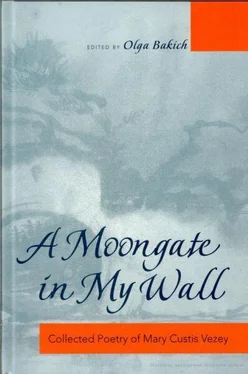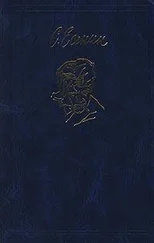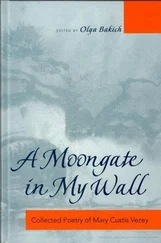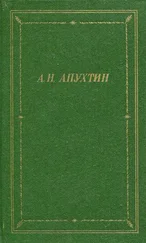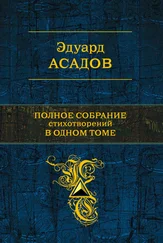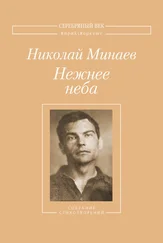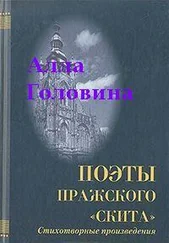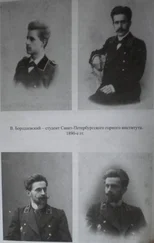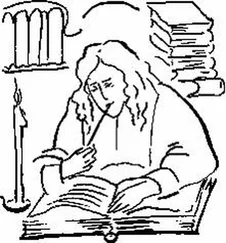In the early 1920s, Henry Vezey became editor-publisher of the Harbin English newspaper Russian Daily News, soon renamed Harbin Daily News, registered at the American Consulate-General in Harbin. The newspaper had supplements in Russian. The forced move from St. Petersburg (renamed Petrograd in 1914) across Russia on the brink of the devastating Civil War to distant and unknown China was a great change for his fourteen-year-old daughter. In a poem written in 1921, she addressed the poet A.S. Pushkin, saying that had "the great Russian genius" been alive, "your heart would have constricted with a terrible pain,/You would have burned with pain and shame/For that Russia, which always / Seemed holy" (poem 268).
She started writing poetry at the age of six. Her first efforts were in Russian, and a teacher, impressed by a poem submitted in class, began her encouraging comment with the words "To the Future Poet." [6] Note by M. Vezey on the manuscript of the poem “V ogromnykh” (In the enormous) (poem 376).
At sixteen, Mary Vezey wrote: "I don't want to be a poet / In order to enjoy poetic laurels, /And not in order to shine /With an empty glory in this world," foreseeing a life guided not by the approval of others, but by inspiration and by "one glorious realization / That I am a poet, for that's what happiness is!" (poem 247). In an early English poem, "A Prayer" (poem 493), she said: "Give me the soul of a poet,/That's filled with music and love…" At the same time, the seventeen-year old poet observed with a touch of humour: "Alas, the languages of all the world's nations / Are so poor that the word "poet" / Is a definition of Shakespeare / And … (oh, innocent satire!) / Of me; there is no other" (poem 270).
Favourite poets of her childhood were A.S. Pushkin and M.lu. Lermontov. Adolescence and youth brought admiration for the Silver Age of Russian poetry, particularly for Alexander Blok, Nikolai Gumilev, and Anna Akhmatova. Blok was seen as the very essence of poetry: "in our youth we were 'discovering' Blok on our own, we fell in love with him, and this love stayed with us for the rest of our lives. (…) There will be no other Blok for us." [7] M. Vizi “Vospominanija o Bloke” (Memories of Blok), Russkaja zhizn (Russian Life) San Francisco, August 1982.
In Harbin, Mary Vezey continued her education at the prestigious Girls' School of the Harbin Commercial Schools. Musia, as Russian friends called Mary, retained fond memories of this excellent Russian school and formed several lifelong friendships there. In 1921–1922, she studied at the North China American School run by the American Presbyterian Mission for children of American missionaries and other English-speaking foreigners, in the city of Tongzhou near Beijing. Her English poems of these years (poems 500, 501) and an imaginary diary of her future life as a painter appeared in the school annual N.C.A (The North China American) [8] The N.C.A., 1920–1922, p. 14–16, 43, 52, 56, 66.
. In the spring of 1922, Mary Vezey graduated from both the North China American School and the Harbin Commercial Schools [9] N.P.A. (N.P. Avtonomov), "Spiski okonchivshikh (1910–1925 gg.)" (Listsof Graduates (1910–1925), Харбинское коммерческое училище Китайско-Восточная железная дорога. (Harbin Commercial Schools of the Chinese Eastern Railway, San Francisco, no. 5, 1958, p. 18.
, and worked for a couple of years as a secretary to Howard Lee Haag, Chief Secretary of the Harbin branch of the YMCA. The branch, opened in the early 1920s, maintained a Russian gymnasium, various professional evening courses for Russian emigres, and several sport and cultural organizations and activities.
In 1925, Mary Vezey sailed, via Japan, to the USA to study at Pomona College (presently one of the six Claremont Colleges) in Claremont, California; her major was Languages and Literatures. In her two academic years at Pomona, she participated in the YWCA, Le Cercle Franca is, the Daubers Art Club, and the Cosmopolitan Club, the latter promoting friendship and understanding between Americans and foreign students. She also worked on Metate, an annual publication by the junior class. Her poetry in English gained recognition, and she was invited to join the Scribblers Society, founded in 1913 by Professor William Sheffield Ament. Membership, limited to twelve, was by invitation only and based on writing ability. The Society's journal, Scribblers Magazine, renamed Manuscript in 1925, published her article "Chinese Poetry during the T’ang Dynasty" and two poems, one of which, "Chinese Serenade" (poem 69), was awarded an honourable mention by the journal Inter-Collegiate World and reprinted. [10] Mary Vezey, "Chinese Poetry during the T'ang Dynasty," Manuscript, Pomona College, v. 2, no. 3, May 1925, p. 14–17; Mary Vezey, "Chinese Serenade." Ibid., v. 3, no. I, November 1925, p. 11 (poem 69 in this collection); Mary Vezey, "Fortune Teller," Ibid., v. 3, no. 3, March 1926, p. 19 (poem 72); Mary Vezey, "To R," Ibid, v. 3, no 3, March 1926, p. 27 (poem 60); "Editor Koempel Says Book Will Appear March 15," Student Life, no. 54, 17 February 1926, p. I.
Returning to Harbin, Mary Vezey worked for her father's newspaper and at various firms which required knowledge of both Russian and English. She continued to write poetry, but did not participate in the "Young Chu-raevka," a Harbin literary circle established at the YMCA by its Russian secretary, Harbin poet Aleksei Achair (Aleksei Alekseevich Gryzov, 1896–1960). Its young members (future Harbin and Shanghai poets Larissa Andersen, Georgii Granin, Valerii Pereleshin, Nikolai Peterets, Sergei Sergin, Nikolai Shchegolev, Vladimir Slobodchikov, Mikhail Volin, and others, most a little younger than she was) held literary and cultural evenings, invited guest speakers, and formed a poetry workshop to read and discuss their works. Henry Vezey was on the Board of Directors of the Harbin YMCA, and it is noteworthy that it was not one of the many Harbin Russian newspapers, but Henry Vezey's American Harbin Daily News that published six weekly issues of the circle's literary newspaper as a supplement. [11] "Molodaia Churaevka," No. 1 (7 July l932)-No. 6 (6 August 1932), a weekly supplement to Harbin Daily News.
As one Harbin poet and journalist recalled, "Mary Vezey, slim Musia, American by father, Russian by mother, by-passed 'Churaevka/ She knew many of its members; she had attended the same school with many of them. Her family was well known in the city; everyone knew her father, the editor of the only American newspaper in the city. Musia, had she wished, could easily have caused a sensation, but she did not strive to publish or to recite her poetry, she was 'hiding/ and only a few had a chance to appreciate her musical, pure lyrics. Finally, she was talked into publishing a book of poetry. It came out in Harbin and was quickly sold out." [12] Ju.V. Kruzenshtern-Peterets, "Churaevskii pitomnik (O dal'nevostochnykh poetakh)" (Cluiraevka Nursery (On the Far-Eastern Poets)), Vozrozhdenie (Resurrection), Paris, no. 204, December 1968, p. 54–55
This book was her first collection, simply entitled Stikhotvoreniia (Poems), with an epigraph from Anna Akhmatova; "The body cannot live / without the sun, the soul — without a song." [13] Akhmatova's lines are from the poem "Skazal, chto u menia sopernits net" (He said that I have no competitors). Anno Domini, Petrograd, 1921, and Berlin, 1923, later translated by Mary Vezey into English (poem 578).
Among many Russian books published in Harbin at the time, it stood out by being bilingual. The cover in Russian was followed by two title pages, in Russian and in English. The book contained 127 poems in Russian, 13 poems in English, 11 translations from Russian into English, 8 translations from English into Russian, and one poem in two versions, Russian and English. Many poems are dedicated to Blok who is presented as a heavenly genius, a teacher, a leader: "I would have given half of my life /just to know definitely / that my song is at least a weak reflection / of his broken reed" (poem 134).
Читать дальше
